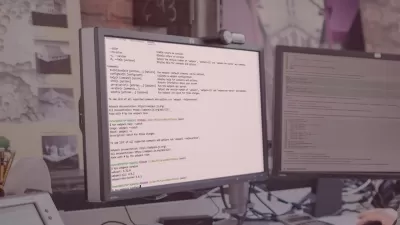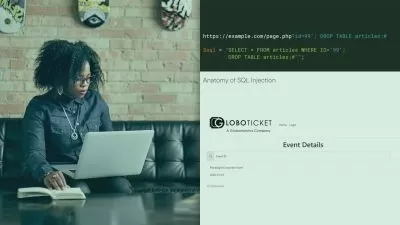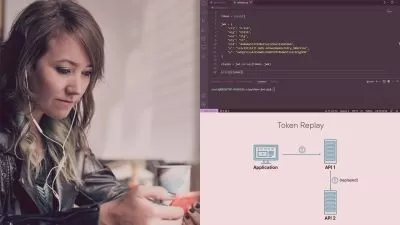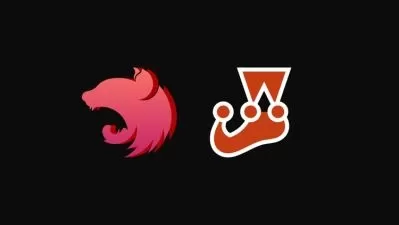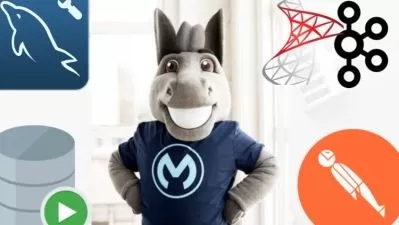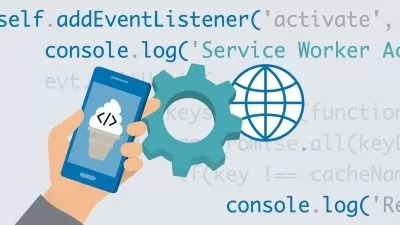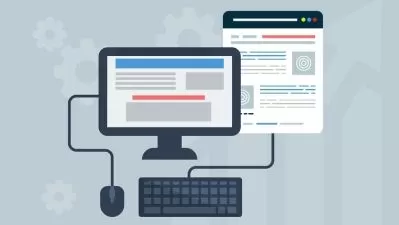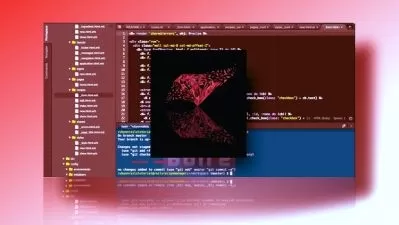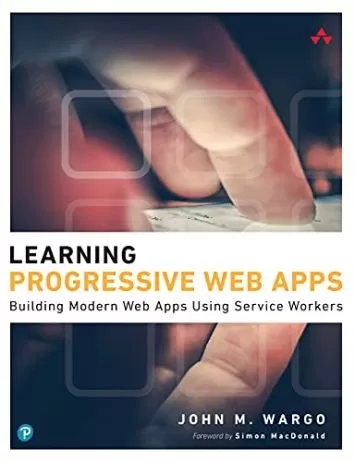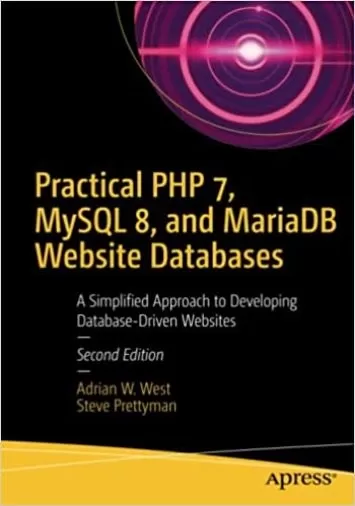About Web DevelopmentLearn More
The world of web development is as wide as the internet itself. Much of our social and vocational lives play out on the internet, which prompts new industries aimed at creating, managing, and debugging the websites and applications that we increasingly rely on.
Sort by:
Sorting
The newest
Most visited
Course time
Subtitle
Filtering
Courses
Subtitle
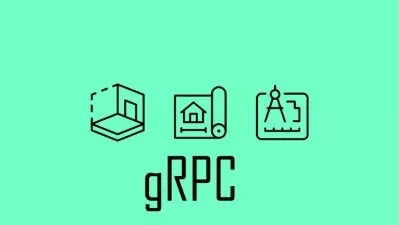
Udemy


Memi Lavi
Building Web APIs with gRPC - The Complete Guide 5:36:59
English subtitles
11/21/2022
Subtitle
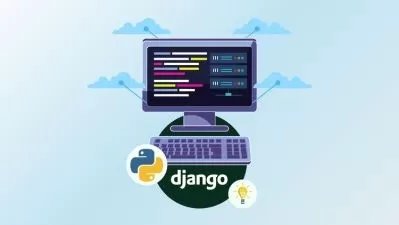
Udemy


Tim Buchalka's Learn Programming Academy
Python Django 4 Masterclass | Build a Real World Project 19:05:48
English subtitles
11/20/2022
Books
Frequently asked questions about Web Development
Web development is a broad description of the tasks and technologies that go into creating a website. It can be as simple as making a static text-based website or as elaborate as developing an interactive dynamic website. You can break web development into two different categories: frontend (client-side) and backend (server-side). Frontend code executes on the user's computer. This can include HTML, JavaScript, and CSS. Backend code runs on the server — this commonly includes communicating with a database and often involves languages like Python, Ruby, Java, or PHP. Web development does not necessarily include the design process — it focuses on code. A web designer builds wireframes to mockup their vision for a website and then shares that with a developer. The developer is responsible for writing the code that implements the design.
Some web developers will obtain a degree or certification in the field. However, most jobs don't require a specific degree or level of education, just demonstrated knowledge of the field. So, it is more important that you know how to show off your skills. You could highlight your skills through relevant work experience or a portfolio of past projects. You might also share code you have developed using a platform like GitHub, or participate in solution-based forums like StackOverflow that reward you for helping others. HTML, CSS, and JavaScript are the first three coding languages you'll need to learn to break into web development. You need these three essential elements to create a modern website and work as a frontend web developer. HTML (Hyper-Text Markup Language) specifies the content of the website and builds the backbone. CSS (Cascading Style Sheets) styles the content. JavaScript controls the interactive elements of the website.
The answer to this question will depend on you. The more time you spend developing your skills, the faster you can become a web developer. The good news is that web development generally uses light-weight code that is easier to learn than many other languages. If dedicated, you can learn the basics of web development in a couple of months. But good web developers never stop learning. A better question might be, "What can I do to become a better web developer faster?" The answer to this question is practice. Becoming familiar with coding helps tremendously, but there is also a less obvious benefit of practicing. The more you code, the more you will run into problems or find bugs in your code. A significant aspect of web development is solving problems and debugging code. The better you get at solving problems and tracking down bugs, the faster you will get at coding.
The must-know languages for frontend web development are HTML, CSS, and JavaScript. These languages are used by nearly every site you visit. JavaScript is a fundamental programming language for adding interactivity to your website. There are many popular JavaScript libraries that you can import and allow you to add useful functionality while dramatically decreasing the amount of code you might write, and offering features that would be difficult or time-consuming to code yourself. Once you are comfortable with JavaScript, you will want to explore the many libraries available. There are many other programming languages that you can use for web development. If you want to write backend code, you will need to learn a language that runs on the server that powers your website (as opposed to the web browser, where frontend code is executed). Consider learning Python, Ruby, Java, or PHP. It can be helpful to research which backend language is popular in the field that interests you most.
You'll need to be able to code in HTML, CSS, and JavaScript. Mastering these three languages is essential for web development. They each serve a crucial function: HTML is the content itself – the words, pictures, etc., CSS controls how all of that content looks, and JavaScript makes a website interactive. Luckily, you can learn all three languages on your own using online tools and courses. To be a good web developer, you'll also need many skills beyond programming languages. A crucial professional skill is problem-solving. Good problem-solving skills will help you to track down bugs quickly and develop algorithms to complete complex tasks. Interpersonal skills are also necessary for the job, such as communication and collaboration. Many web development projects require a team of developers. To succeed in web development, you must work well in team environments.
Frontend web developers write client-side code. This is all the code that runs on the user's computer when they visit a website. Generally, this includes everything that the user can see. To write frontend code, you need to know HTML, CSS, and JavaScript. Backend web developers write server-side code. This is all the code that runs on the website's server. Backend code controls the logic of the website. For example, a frontend developer may code where a username will appear on a website and its style, but the backend developer will write the code that retrieves the username from the database. Backend developers need to know a server-side programming language in addition to HTML and JavaScript. Not all projects have a front and backend web developer. Some projects only have full-stack web developers, which do both front and backend coding. The team composition depends on the needs of the project. Full-stack web developers need to be strong front and backend coders.
There is a plentiful variety of web development jobs than there has ever been. Webmaster is a traditional web development job that requires the applicant to know a little about everything, from managing content to adding new functionality to an existing website. Some web development jobs involved modifying the functionality of web platforms like WordPress, Drupal, or Magento. Others require you to create custom web applications using web development frameworks like Laravel, Flask, or React Native. A web developer can work on the front-end of a web application using HTML, CSS, and JavaScript, on the back-end of the application building the services apps use to retrieve the data they display, or on both parts of a web app as a full-stack developer. Web development technologies get used for traditional web development, enterprise app development, mobile development, and desktop development.
There are many types of people who will find web development the perfect job for them. Building web applications is all about solving problems, and it is a great career choice for people who like to explore creative new ways of coming up with solutions. Web development is also suitable for people who enjoy working independently, as you will spend a lot of your time alone with the code you write. A web developer should also be an efficient listener to translate the needs of a business into the website they need. Web development jobs are great for people who don't give up easily because sometimes troubleshooting bugs in code can be difficult. A web developer also needs to love learning. Web development technologies change fast, and web frameworks that have only been around a few years suddenly become a necessary skill, so you have to be willing to learn to stay current.









